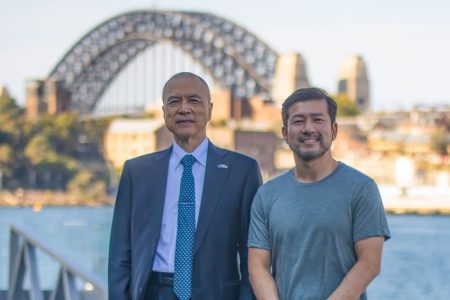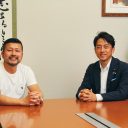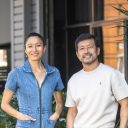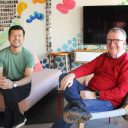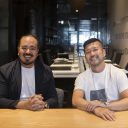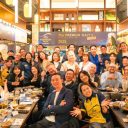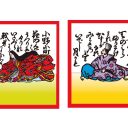In Conversation Vol.29
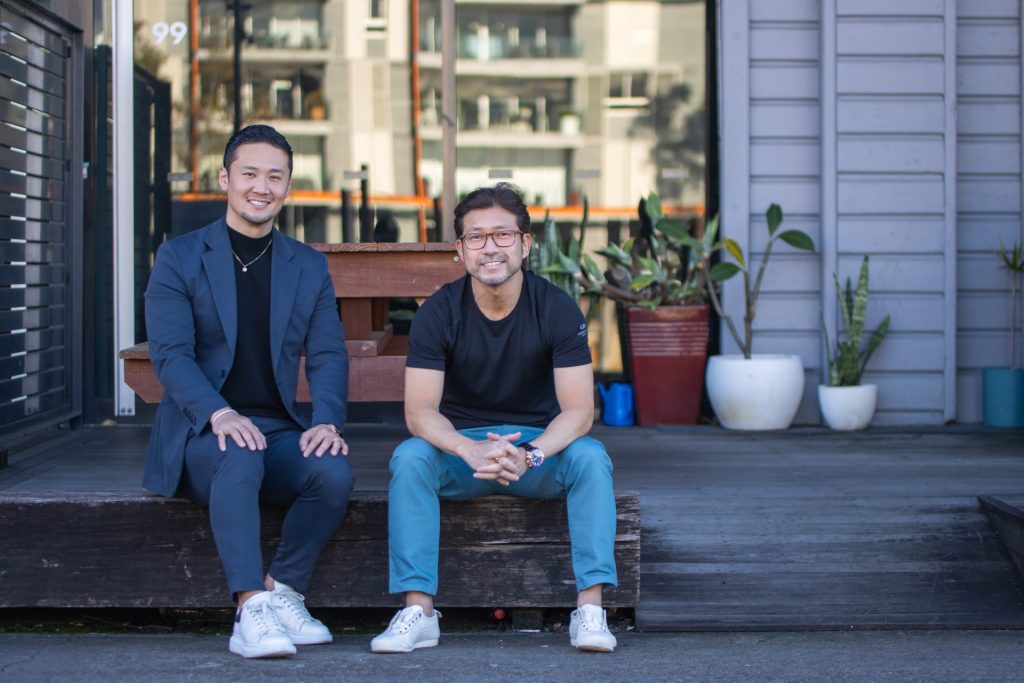
In this series, Yoshinori Sakuno, founder of the Japan–Australia cross-cultural marketing firm doq® and chairperson of Nichigo Press, conducts conversations with key figures shaping Japan–Australia relations and business. This time, our guest is Tarosac, an Australia-based YouTuber with over one million subscribers, who also supports many students through his work in English education.
(Photography: Satoko Clarke, Translated from Japanese by Sachi Kobayashi)
PROFILE
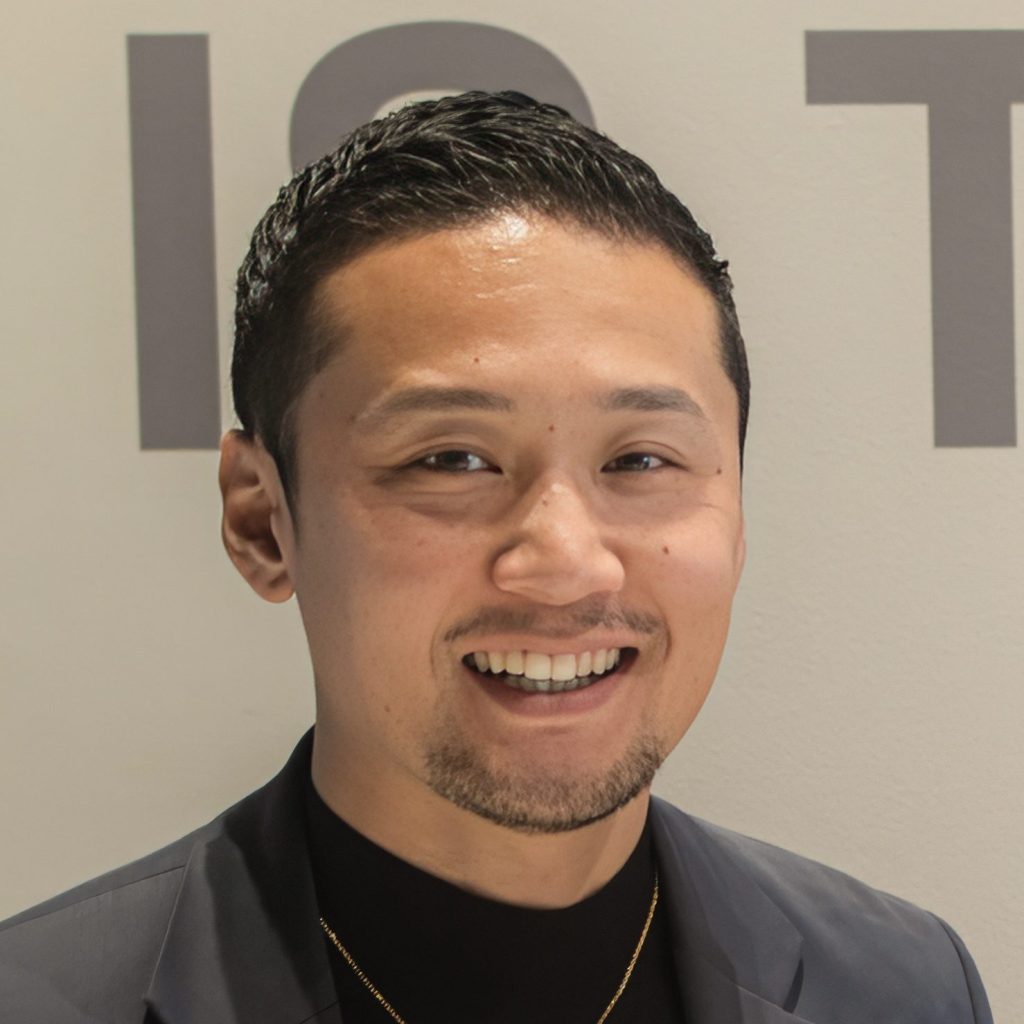
Tarosac
Born in 1990 in Niigata Prefecture, Japan, Tarosac began his journey as a YouTuber at the age of 29. His videos span English-language interviews with people from diverse backgrounds and useful information related to life abroad. Known for his affable personality and natural conversational style, he has garnered a strong following among many viewers. In 2021, he launched “TAROSAC ENGLISH,” an English conversation service with the tagline, “Globalise your life by getting started.” In 2022, he published The Complete Working Holiday Guide. His book, Even an Idiot Can Speak Fluent English! A Super Study Method: How to Improve Your English Conversation Skills from Below Average Marks[i] was published by Diamond Inc. in 2023.
PROFILE
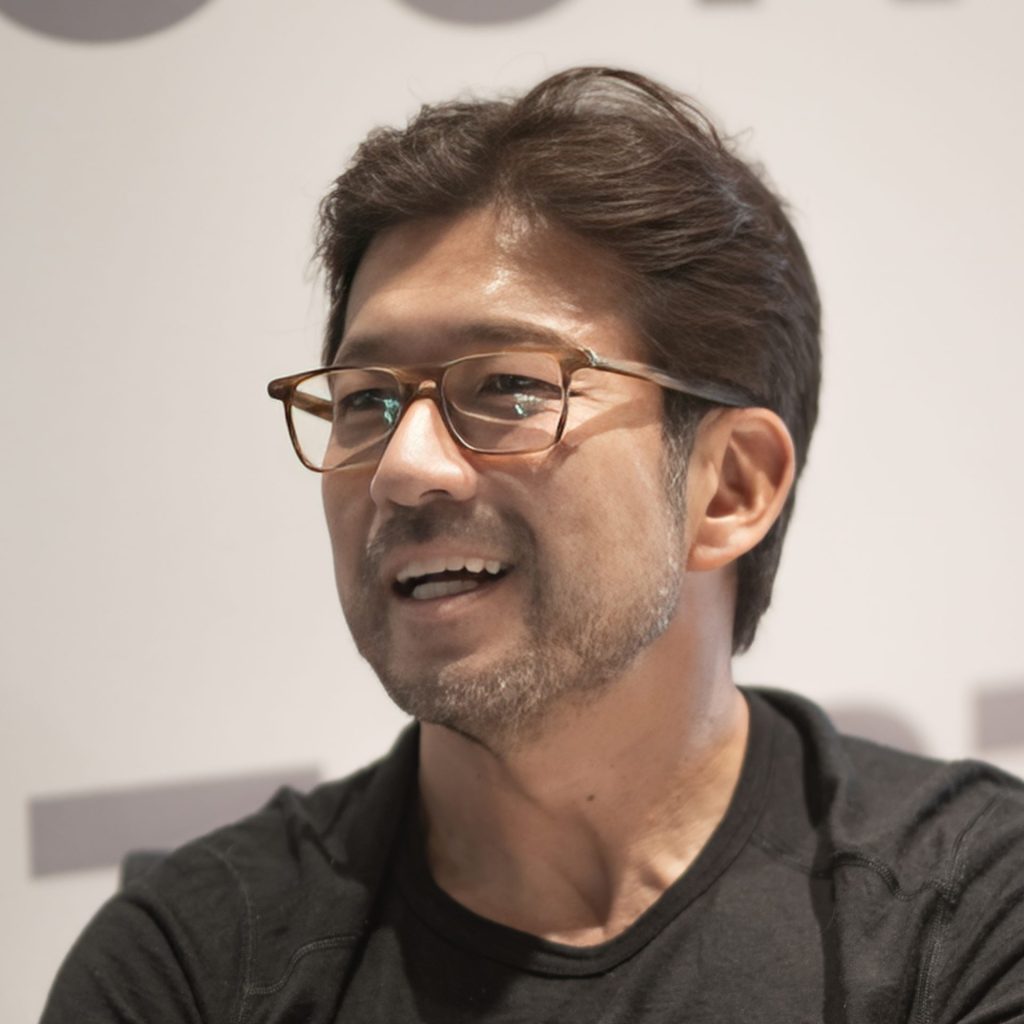
Yoshinori Sakuno
Founder and Group Managing Director of doq®. After gaining experience in the APAC and Western markets at the U.S. advertising agency Leo Burnett, he founded doq® in 2009. He holds an MBA from University of NSWs AGSM and a master’s degree in Digital Media Management from Hyper Island Singapore. He was a finalist for the “Ethnic Business Awards” that honour immigrant entrepreneurs and received the 2021 NSW State Export Award for the Creative Industries sector’s Best Company.
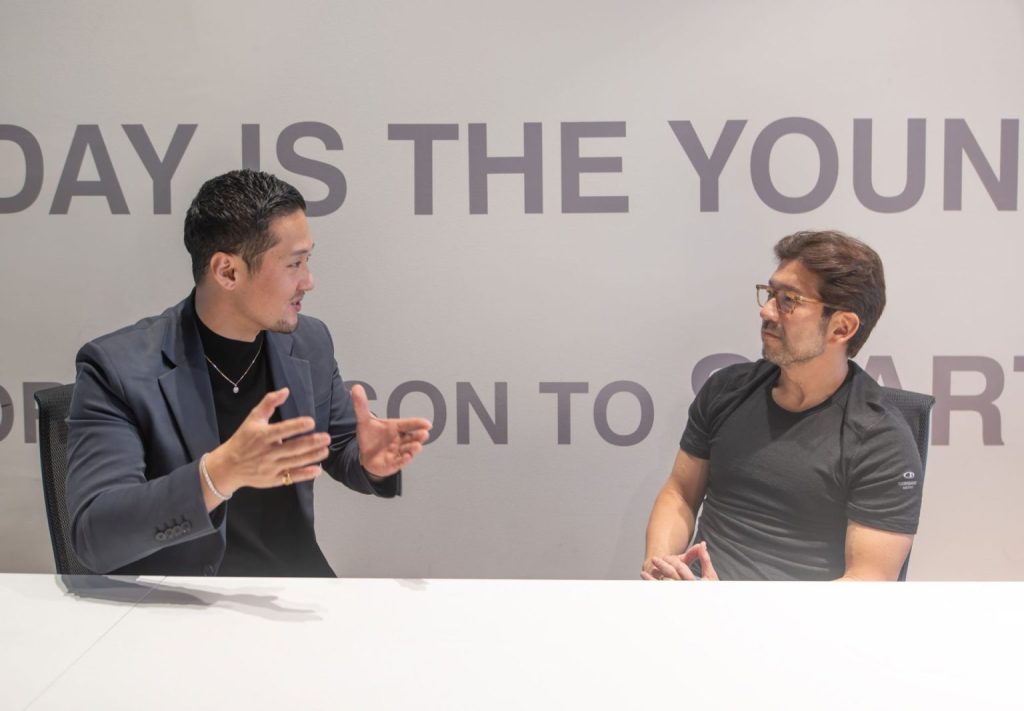
Sakuno: Please tell me about your background and student years.
Tarosac: I was born and raised in Murakami, Niigata Prefecture – a rural town bordering Yamagata Prefecture. I attended local public schools for elementary, middle, and high school. As my family believed that “English will be important in the future,” I attended ECC Junior[ii] from grades 1 to 6, with tuition paid by my grandparents. Although I didn’t have particularly strong feelings towards English, when I was in elementary school, my mother read me picture books like Anne of Green Gables, and songs such as Oasis’s Don’t Look Back in Anger played on TV. From these Western music and stories, I naturally developed a longing for “overseas.” There was also a local student exchange program, and though I wasn’t selected to go to America, I participated in the program and met American children who stayed in my hometown. This created opportunities to meet different people, and although I could speak little English and my study left a lot to be desired, the interactions left a lasting impression. During high school, I was absorbed in band activities and completely failed university entrance exams. I spent a year studying to retake them, and in the spring when I turned 18, I decided to “learn English from scratch.” Around that time, on the then-popular Myspace platform, while listening to music from around the world, I received a message from a girl from Lithuania saying, “I’m interested in Japan, I want to talk.” I thought, “This is a special chance,” and we began to talk through Skype for about one hour every day. That was fun, and my English improved naturally. In my next university entrance exam, I scored 48 out of 50 in listening, which enabled me to enter the English and American Studies Department (Faculty of Foreign Languages), at the Kanda University of International Studies.
Sakuno: At university, you majored in English. Did you ever study abroad?
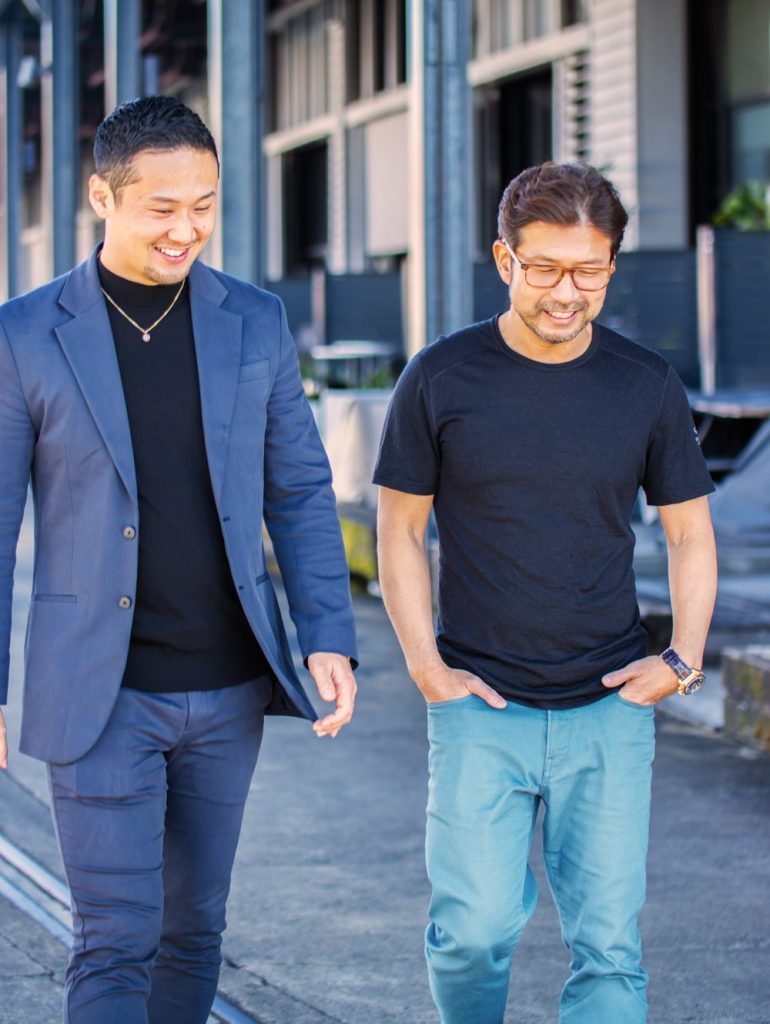
Tarosac: I was interested in studying abroad, but I’m terrible at preparation. I had worked hard and gotten into university, but back then my dislike of tedious tasks persisted, so I never properly researched my options. However, since there were many exchange students at my university, I had daily opportunities to interact in English. I had a British girlfriend at one point, and as I worked part-time, I was able to save enough for biannual overseas trips. In that sense, I feel that my student life was quite richly “immersed in English,” even without formally studying abroad.
Sakuno: You achieved a 96% listening score while in Japan, through cross-cultural experiences and free tools like Skype. That’s incredible. It must encourage learners who aren’t able to study overseas, to know that it is possible to build these skills at home. What did you do for work after graduating from university?
Tarosac: After graduating, I worked in real estate, but I didn’t use English, it wasn’t the kind of work I wanted to do, and the interpersonal relationships were difficult. I think it takes hitting rock bottom, or a painful experience that might feel like being hit on the head with a hammer, for people to truly be able to change. That’s what I believe. I realised, “After all this, I have to do what I really want to do.” I quit my job, seriously researched, worked part-time for a year to save money, and left for Australia on a working holiday visa in October 2015.
Sakuno: When you arrived in Australia, how was it? I imagine you would have experienced challenges – how did you overcome them?
Tarosac: At first it was tough. Before coming to Australia, I had worked part-time for a year and although I hadn’t used English at my workplace, I had this strange confidence where I thought I could speak it. When I arrived at Sydney airport and called the hostel I had booked, I couldn’t understand the Aussie accent at all. I remember heading towards Kings Cross by train, feeling so defeated. That was when I first felt homesick. I couldn’t communicate as well as I had imagined, so I couldn’t make friends. The visage of this beautiful working holiday dream felt shattered. I struggled quite a lot during the first few months, but I stayed in a hostel with many international travellers, and I met and spoke with people from Germany, Italy, the UK, etc. Through shared living, I gradually gained confidence. I moved into a share house with a British friend, and through an employment agency I was lucky to get a job at a luxury furniture company. I adjusted to the environment here, and my English ability improved.
The Pandemic and the Pivot to YouTube
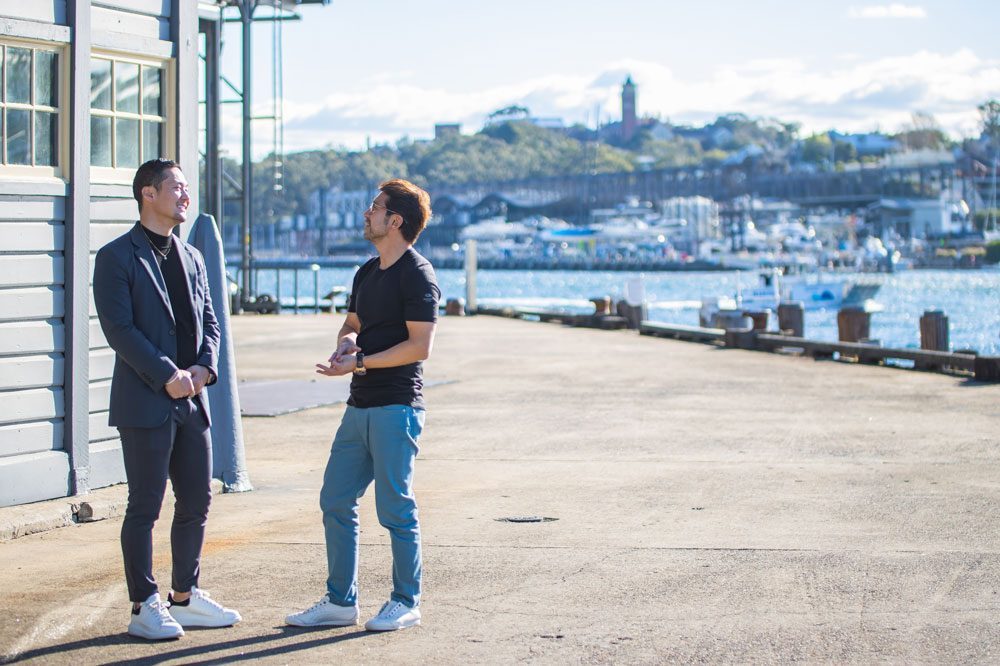
Sakuno: How did that lead to starting a YouTube channel?
Tarosac: About three months after coming to Australia, I thought, “Australia is wonderful, I want to live here permanently.” In Japan, the work environment often felt strict and harsh, but here I saw people enjoying their jobs freely. Seeing different ways of working across various companies made me think, “Ah, this is what life is really meant to be.” Even so, being poor at planning I didn’t take steps towards permanent residency, and before I knew it two years had passed. When my visa was running out, an immigration consultant told me that I needed to train as a chef or accountant to quality for PR. I applied for a student visa and enrolled in culinary school. I had absolutely no cooking experience and began my chef career from scratch. Initially, it was difficult, but I managed. Then, the pandemic hit, and I lost my job. I was on a graduate visa, and the timing was terrible. I had broken up with my Japanese partner of six and a half years, because of my own immaturity and parts of myself I hadn’t properly faced. I was very down and felt as though I had hit rock bottom. Mentally, it may have been the lowest point of my life: no job, no income, anxiety about future visas. Perhaps it is the same for everyone on a student visa, but the struggle to stay afloat amidst tuition, insurance, visa and consulting fees was constant. Expenses piled up and the future looked bleak. I thought, “What’s going to happen to me?”. My best friend’s words suddenly came to mind. He used to tell me, “Tarosac says stuff like ‘the chill life is the best life,’ but deep down you’re not that kind of person. You’re just someone who has to do something on their own terms.” He had been saying that to me all along. That stuck with me, and I thought, “I have to do something.” I had no money, just a smartphone and some English ability. I decided to try my hand at YouTube. In May 2020, in the thick of the pandemic, I uploaded my first video.
Sakuno: What kind of idea did you start from?
Tarosac: If you search keywords like “Australia” and “Japanese,” typical content covers working holiday visa experiences, cafe guides, and English study tips. At first, I tried imitating those common themes, but the results were demoralising. Views stagnated at around 60-70 per video. I think everyone who starts a YouTube channel feels this, but after putting out 2 or 3 videos, continuing to produce content is hard. Ideas run dry, and even a 10-minute video requires a huge amount of work. It was a harsher world than I had expected.
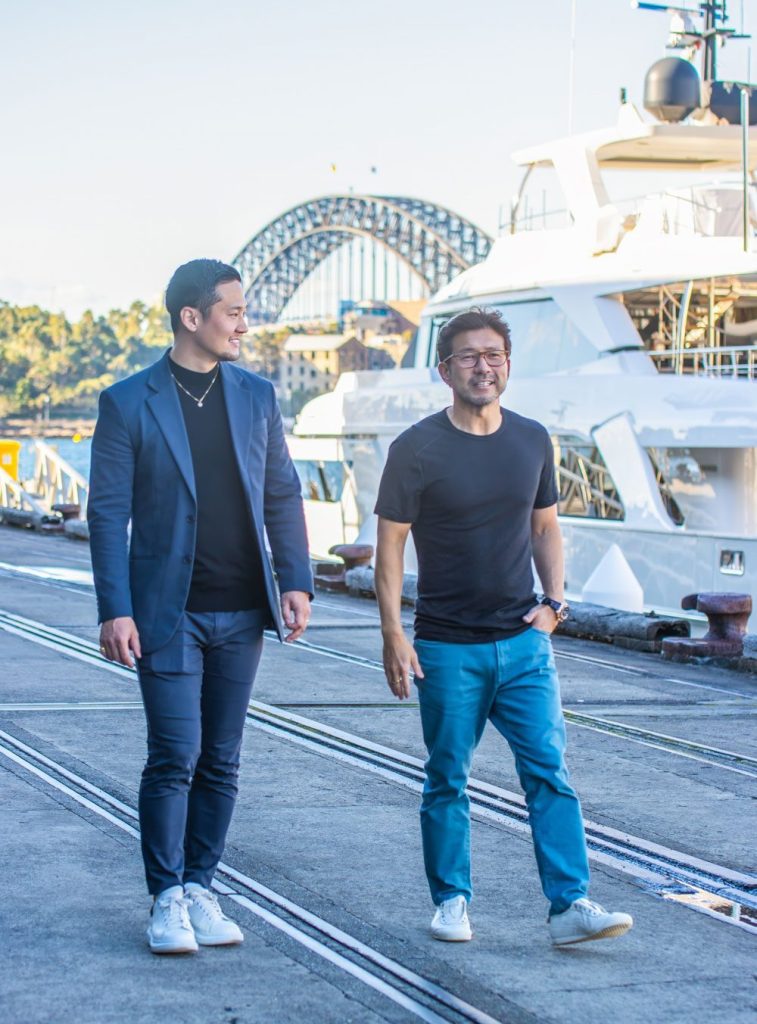
Sakuno: How did you turn things around from there?
Tarosac: That was my second blow[iii]. I told myself, “This time, I will absolutely see it through.” I had around 400 Instagram followers, and most were friends. I vowed to myself, “I will absolutely continue with YouTube. I am not doing this for fun, I’m doing it to change my life.” If I quit, I’d make a mockery of myself, so instead I posted stories almost daily to propel myself forward. I pushed myself. I watched business-focussed Youtubers who were popular back then and studied how they talked and grew their social media. One day, I saw that a Japanese-Youtuber-Living-Overseas had posted an interview video titled “I ask foreigners what they think of Japanese people.” It had an unusually high number of views. What’s more, that video had far more views than the rest on their channel. I realised that the strength of the view count came from the topic, not the creator. I thought, “I should become a Youtuber who focusses solely on this theme.” The timing was right as pandemic restrictions eased, so I quickly planned the concept and went out to film. When I posted a video asking Australians on the street about their impression of Japanese people, engagement with my videos jumped from 70 to 400 views, about a 6-fold increase. That was the turning point.
Sakuno: Did you stick with that format?
Tarosac: At first, no, I couldn’t sustain it. It was emotionally draining to approach strangers, especially given the interviews were in English. You risk and experience a lot of rejection. My friend said, “You should stick to the interviews,” and I remember thinking, “Saying that is easy.” The channel stalled again, but when I released a second video in the same interview format, it surged once more. After all, the answer was right there. I realised that vlog-style cafe content didn’t work, but interviews did. I made up my mind and committed to the interview format. It’s strange, but when I released new videos, older videos gained new traction, and like the snowball effect, the whole channel began to grow.
Sakuno: Alongside the success, did you feel pressure to keep producing hits?
Tarosac: Yes. At the time, I covered a wide range of topics, from serious matters to relationship topics. However, since everyone is interested in romance, those were more likely to go viral. On my channel, while delivering “content with substance,” I also thought I ought to include a tabloid element too. After all, no matter how good the story is, “if no one sees it, it’s meaningless.” The thumbnail is what matters. I’d talk to beautiful women at the beach, make a nice thumbnail, and “first, get people to click.” As I continued, one of my videos ended up getting over a million views. I was really happy and at the same time, felt scared that it would all end. I was constantly battling the fear of losing popularity.
Sakuno: So, you were in a position where you had to keep producing results while worrying. That must have been quite a lot of pressure. I’m sure you had many opportunities to speak in public, but did you ever receive various opinions and comments from those around you by being in the public eye on YouTube?
Tarosac: Of course. In comments and DMs, I would get messages like, “With that level of English, I can’t believe you appear so confident.” I don’t necessarily think all my opinions are correct, and if another person has a valid point, I can simply use that to improve my videos. However, when faced with comments that mock my appearance, I find that I can take them rather calmly and think, “Well, there are people who think like that.” Surprisingly, I might be the type of person who doesn’t really let comments of that nature get to me.
Sakuno: You kept creating content, withstood pressure, and never gave up – you always pushed through. From that attitude, I sense the strong will of someone who “keeps going.”
Tarosac: Honestly, when I first started YouTube, it was brutal. Until then, I had believed I could handle anything, but that was overconfidence. The pandemic changed my life all at once, and I truly came to feel that nothing comes without effort. From that point on, “never giving up” became my mantra. When I was a kid, I thought I was the main character and believed without a doubt that life would turn out well, but I was made to realise that real life isn’t so easy. I believe it’s precisely because I was able to get serious at that point that I am where I am today.
Delivering “Serious Learning” Through English Coaching
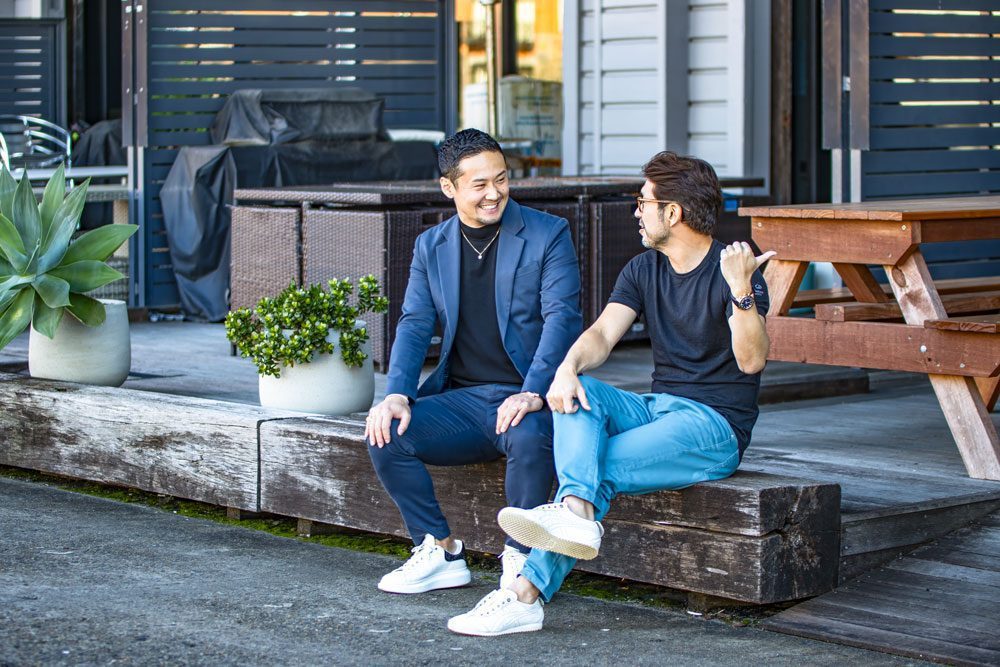
Sakuno: As someone offering a new kind of English learning experience, what does “learning” mean to you?
Tarosac: It might sound cliché, but to me, all learning begins with failure. I’ve coached over 1,200 people in English so far, and many of them tell me, “I’ve been too afraid of making mistakes to even try.” What I’ve learned through personal experience is this: “Done is better than perfect.” It’s not about waiting until you’re perfect to start, it’s about trying. I’m far from perfect myself, but I keep going. I’ve failed many times. I’ve poured my heart into videos that got barely any views. But that’s exactly what leads to improvement. The more you fail, the more chances you get to improve.
Sakuno: That really resonates with me. I also believe that “learning while doing” is the essence of learning. What led you to start English coaching?
Tarosac: Around the time I started learning how to run a YouTube channel, a business YouTuber said something that stuck with me, which was “We’re now entering the age of Influencer 2.0.” Influencer 1.0 was all about “views = income.” 2.0 is a world where “followers want to buy products from that person.” You need to have your own product and offer real value in order to be in demand. I knew I wanted to go in that direction, but I had no business experience. I started with apparel. I tried making and selling T-shirts and although I had 200-300K followers at the time, I only sold a dozen or so. That’s when I realised, “There still isn’t a compelling reason for people to buy from me.” People weren’t watching me for their fashion; they were interested in English. I decided to focus on that and launched an English conversation school. It did well at first, but it wasn’t unique, and student numbers declined. When I started to ask myself, “What do I really want to do?” honestly, deep down I wanted to earn a lot of money. I couldn’t take the first step because I lacked confidence. Then I happened to meet a coach who asked, “What do you truly want to do?” I answered, “High-ticket English coaching.” When they asked, “Then why aren’t you doing it?” I realised the answer that came out was, “I don’t have the confidence.” I didn’t have any certifications like TOEIC, and I had never received coaching myself. I realised I had this anxiety around not knowing if my methods were valid. That coach said, “Then why not experience it for yourself?” I enrolled in a coaching program, and when I scored 985 on the TOEIC, I thought, “If I can do this, I can coach too.” I spent a year preparing with everything I had and then launched my own English coaching program. Now, more than 600 students have taken part. It’s all online, but we also hold in-person events in Tokyo and Osaka and do group activities together.
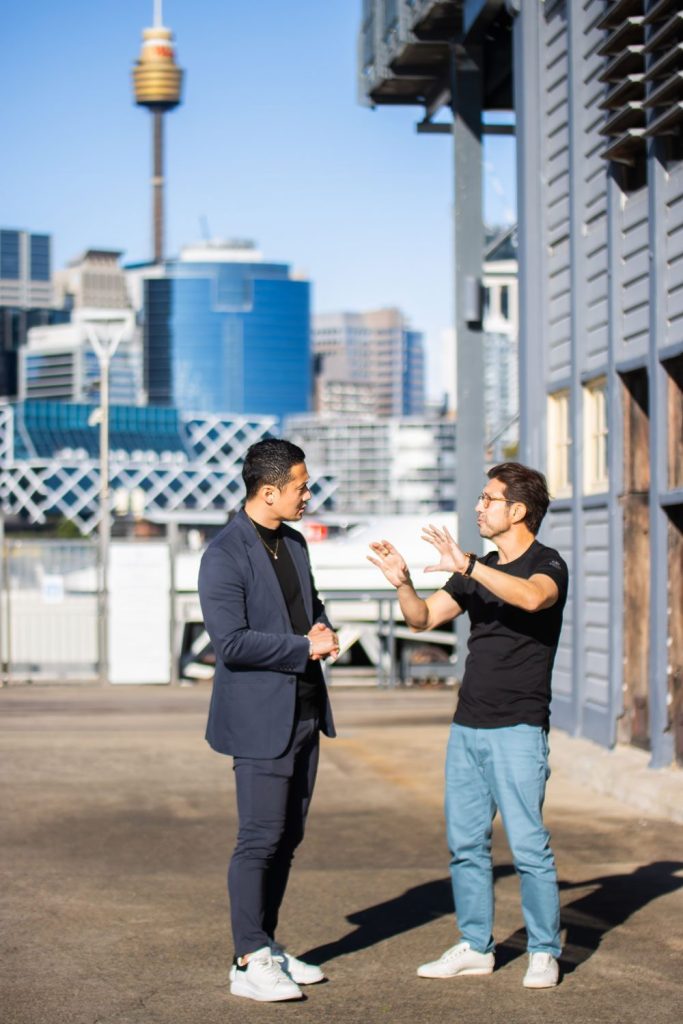
Sakuno: You’ve truly created a “new kind of learning environment.” Education is tough these days, especially with AI making the future uncertain. What are your thoughts on that?
Tarosac: AI is evolving rapidly, and I actively make use of it myself. I teach my students how to utilise AI properly as well. My ultimate goal is to make myself unnecessary, for my students to become independent learners. My philosophy is to “teach everything” and “hide nothing.” I want students to be able to learn even without me. When they build their skills in that open environment and later say “I’m so glad I learned from Tarosac,” that is the most rewarding feeling for me.
That said, AI can’t replicate emotions. It can’t reply with a voice message even at midnight, or reach out to someone when they’re struggling. That kind of human connection is something AI can’t replace, so I believe that passionate education will become even more important moving forward. On my official LINE account, I offer a lot of learning materials for free, to the point where people might wonder, “What more is there to learn?” However, in the end, there is still value that can only be gained through direct, firsthand experiences.
Sakuno: I believe your approach, to “Freely share knowledge and experience without holding back,” to focus on what only humans can do, to show empathy and to value connection with others, will resonate with many educators. Finally, could you share a message for our readers?
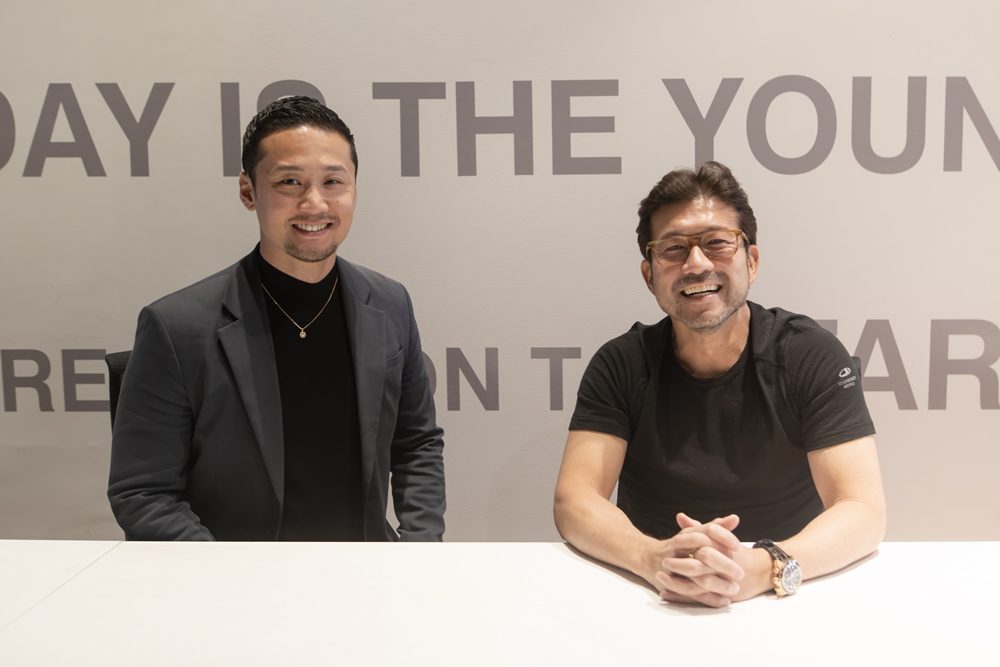
Tarosac: When you start something new, especially when moving abroad, most people will face negative emotions. When I first came to Australia, I felt homesick, even though I loved being overseas and speaking English. It was the same when I started a YouTube channel. New challenges always bring new fears and anxieties. However, if you persevere through those “painful experiences,” one day you’ll be able to look back and say, “I’m glad that happened.” That is to say, the past can be changed. “Keep going,” and “Don’t run away.” Those two mottos alone can change your future. It is precisely the hard times that make you stronger. Most people quit when they’re in a pinch, but only those who don’t are the ones who are able to seize opportunity. So, when you hit a rough patch, I hope you’ll take it as a ‘chance’ and enjoy it. I hope you try that mindset.
Sakuno: You possess a firm belief in “continuing” and “not giving up,” but there’s also a sense of flexibility in your attitude. Instead of charging ahead blindly, you learn from failures, listen to others, and adjust your path as needed. That’s very inspiring.
Tarosac: What I keep in mind is this: “Always listen to others.” When I started coaching, I didn’t know what I was doing. I messaged well-known English-learning influencers and boldly sent them DMs saying, “Please teach me everything from scratch.” It may have seemed rude, but to me, growth matters more than pride. Pride only hinders progress. That’s why, if you adopt the mindset of “please teach me,” you’ll be ready to seize opportunity when it finally comes knocking.
Sakuno: Thank you for such a wonderful message.
(June 10, in Sydney)
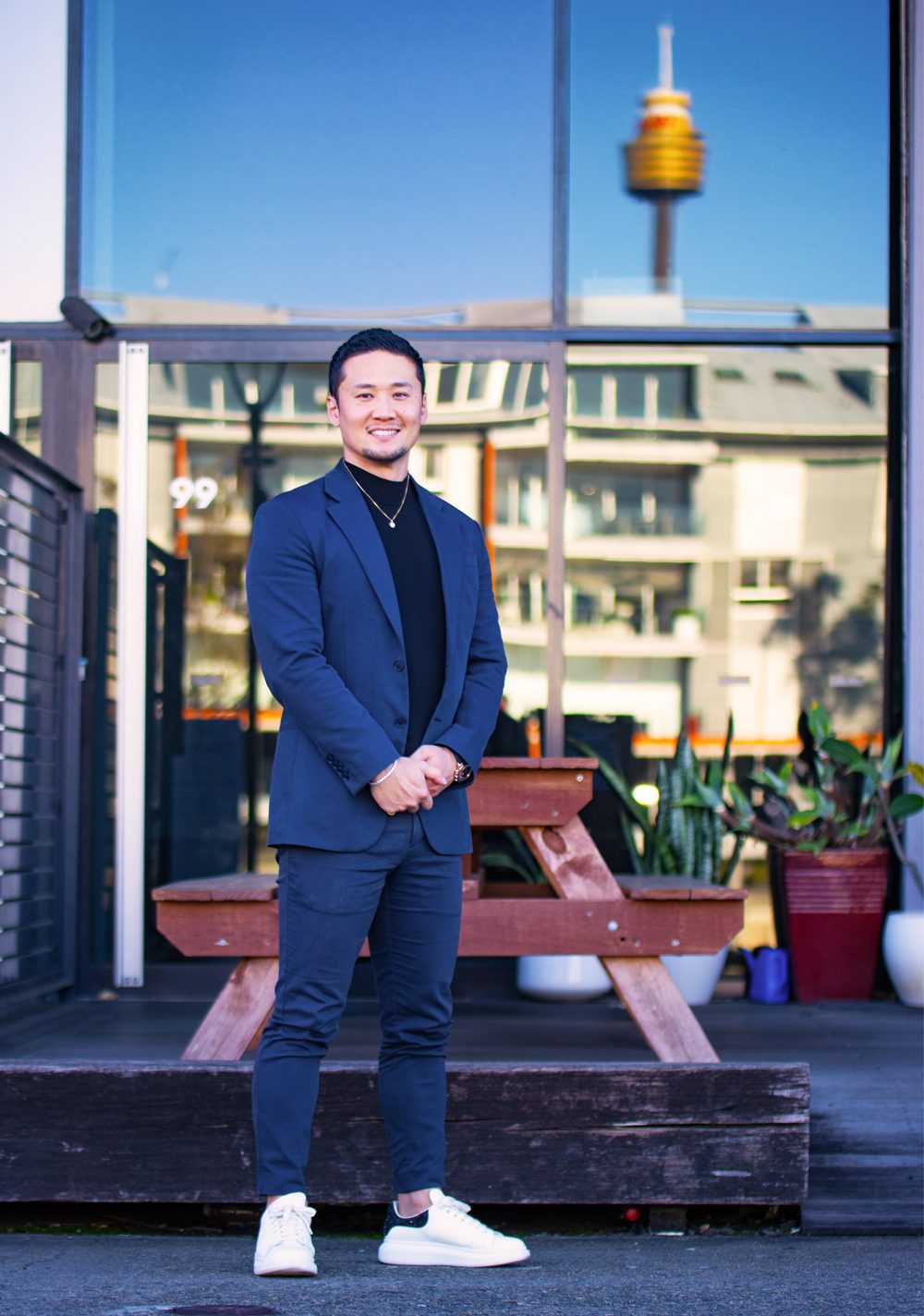
[i]「バカでも英語がペラペラ! 超勉強法 「偏差値38」からの英会話上達メソッド (Diamond Inc., 2023」For the purposes of this interview, “Hensachi 38” has been translated to “below average marks”. Hensachi is a deviation value that comes from the Japanese academic ranking system and is commonly used to represent how well a student performs on standardised tests, such as high school and university entrance exams. Hensachi 38 implies the approximate bottom 15%.
https://hensachi.tokyo/hensachi/38?utm_
[ii] ECC (Education through Communication for the Community). Franchise schools located throughout Japan to promote the English teaching of Japanese children between the ages of 2 and 15.
[iii] 「金槌で頭を叩かれたような感覚」hammer to the head blow

